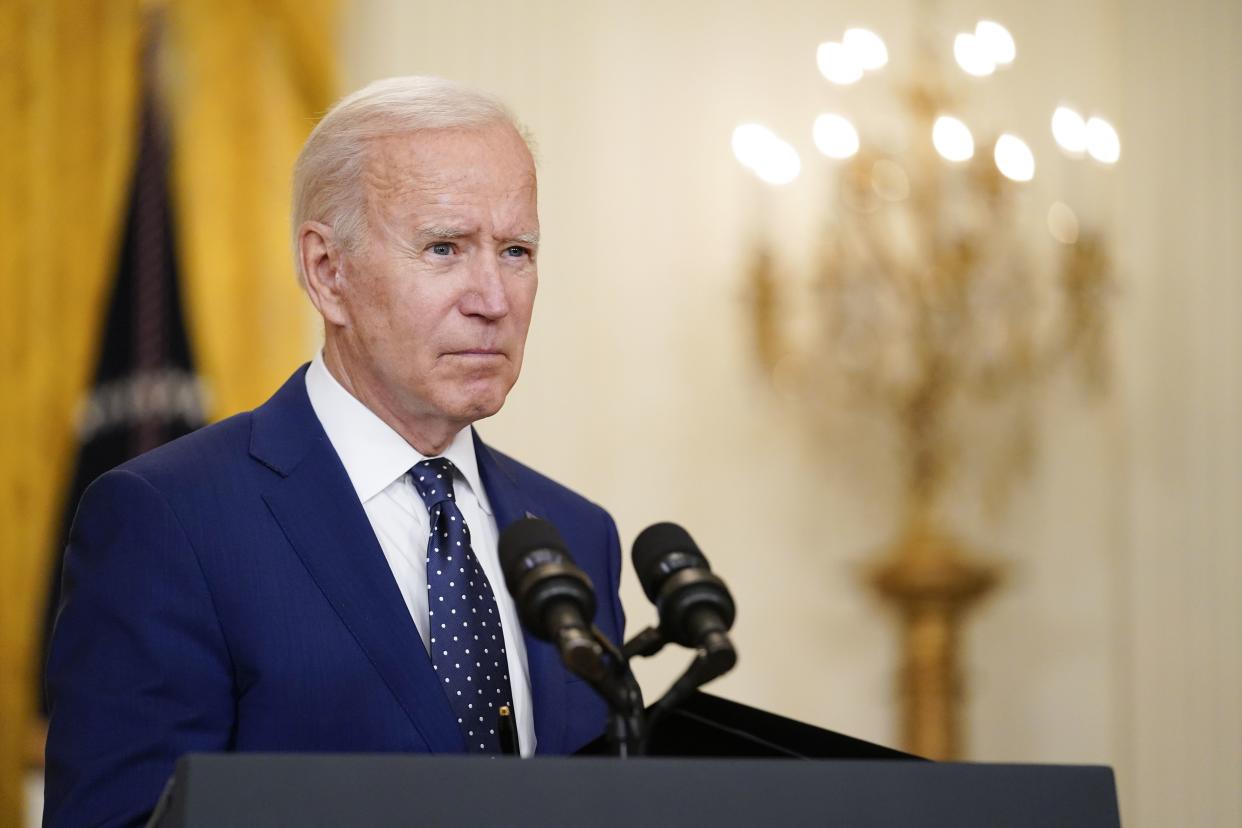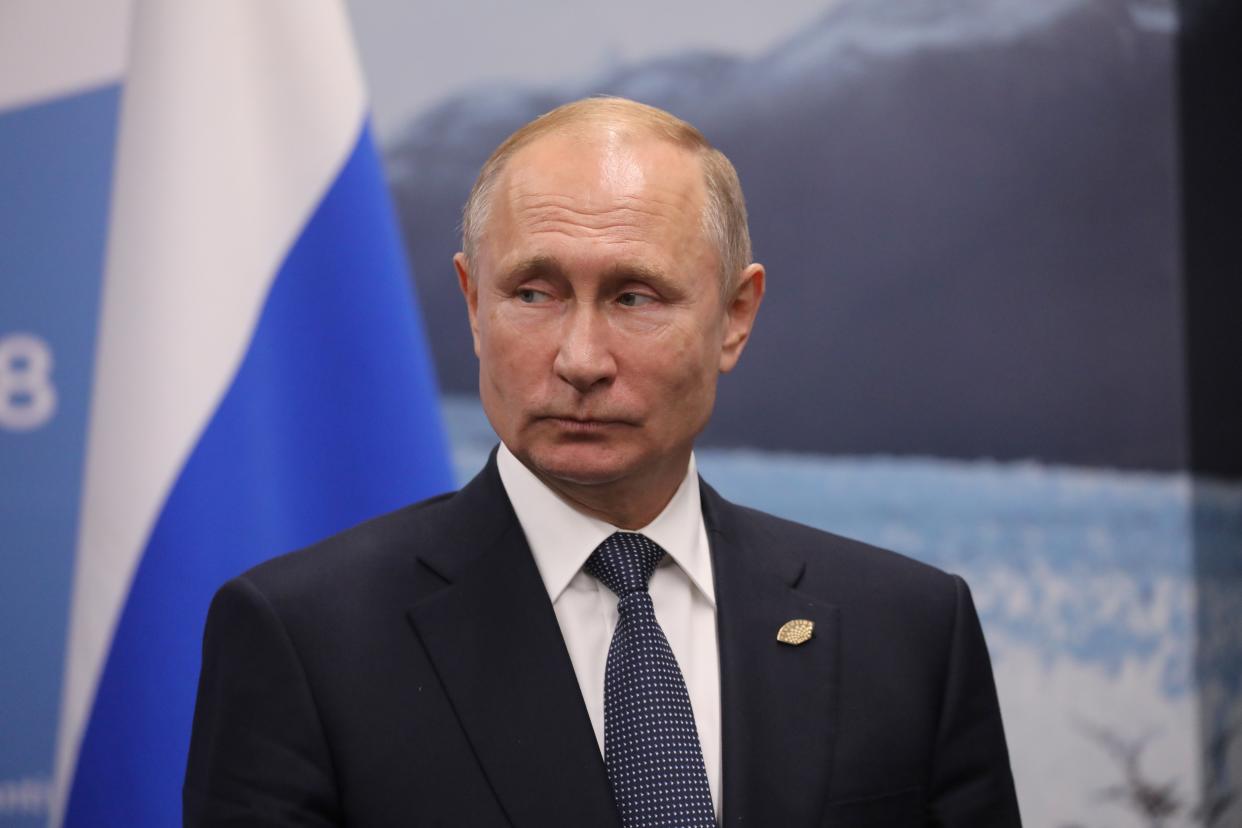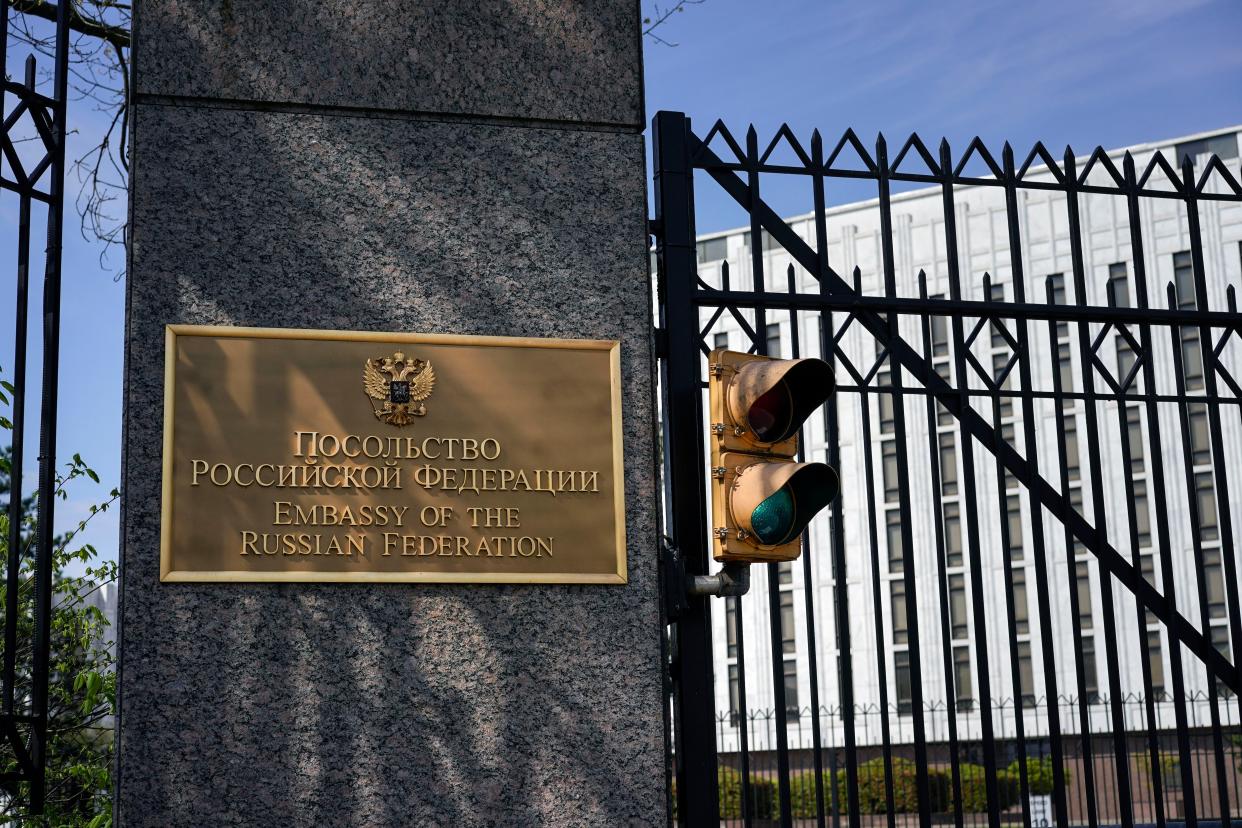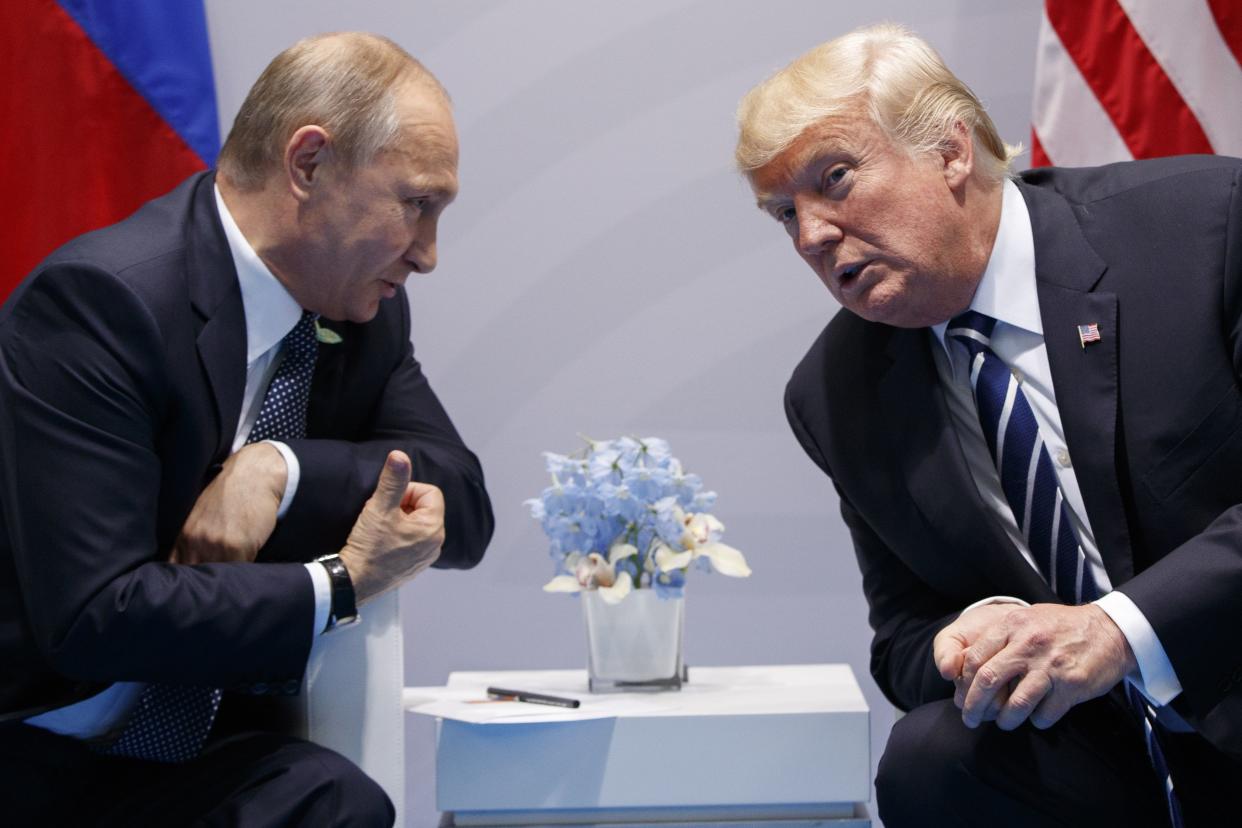‘We could have gone further’: Biden expels Russian diplomats, issues new sanctions over hacks, election meddling
Don’t poke the bear, Vlad.
President Biden on Thursday expelled 10 of Vladimir Putin’s diplomats and slapped crippling new sanctions on dozens of his operatives in retaliation for their interference in U.S. elections and cyber-attacks on American government agencies — and the Russian leader could face even harsher actions going forward.
“I was clear with President Putin that we could have gone further, but I chose not to do so. I chose to be proportionate,” Biden said at the White House after his administration announced the retaliatory onslaughts. “If Russia continues to interfere with our democracy, I am prepared to take further actions to respond. It is my responsibility as president of the United States to do so.”

Among the 10 diplomats booted from the country were representatives of Russia’s intelligence services, which played major roles in the Kremlin’s various attempts to interfere in the 2016 and 2020 elections to help former President Donald Trump, according to the U.S. spy community.
The slate of sanctions levied by the Treasury Department are targeting 36 Russian individuals, entities and companies deemed to have helped facilitate last year’s highly damaging SolarWinds hacks into U.S. cabinet departments and the Kremlin’s election meddling schemes.
Some of the sanctions were also aimed at punishing Russia for its military annexation of Ukraine’s Crimea region, which Putin has long claimed belongs to his country.
Despite the wide-ranging actions, Biden said he’s in discussion with Putin’s team about a summit in Europe this summer to “address a range of issues facing both of our countries.”
“The U.S. and Russia could launch a strategic stability dialogue to pursue cooperation in arms control and security,” said Biden, who spoke with Putin on the phone earlier this week. “We can address critical global challenges that require Russia and the U.S. to work together, including reigning in nuclear threats from Iran and North Korea, ending this pandemic globally and meeting the existential threat of climate change.”
Biden added: “The United States is not looking to kick off a cycle of escalation and conflict with Russia.”

Putin, who claims his government isn’t meddling in U.S. affairs, had his spokesman, Dmitry Peskov, warn in a statement that the Kremlin will respond in kind to any “illegal” American sanctions. “The principle of reciprocity operates in this area,” Peskov said.
In adopting a publicly combative stance with Putin, Biden is drawing a sharp distinction with Trump, who remained reluctant throughout his time in office to criticize the Russian leader even as his administration maintained sanctions on his government.
The U.S. intelligence community has concluded unanimously that Putin personally authorized and directed efforts to boost Trump’s 2016 and 2020 campaigns. In 2016, Russia also hacked into American voting systems, though there’s no indication that it was able to manipulate outcomes, according to U.S. officials.
Among the companies sanctioned Thursday were websites that the U.S. says operate as fronts for Russian intelligence agencies to spread disinformation, including fake news stories pushing Trump’s false claims of widespread voter fraud in the 2020 election.

In a potentially economically significant move, the sanctions also prohibit American banks from purchasing Russian bonds directly from the country’s central banking systems, complicating the country’s ability to raise capital and do business internationally.
Among the individuals facing new economic sanctions is Konstantin Kilimnik, an accused Russian agent from Ukraine who used to work with Paul Manafort, Trump’s criminally convicted and since-pardoned 2016 campaign chairman.
Kilimnik was one of the most mysterious figures in former special counsel Robert Mueller’s investigation into whether the Trump campaign colluded in Russia’s attack on the 2016 election — and Thursday’s sanctions announcement contained a previously unknown detail about the enigmatic agent.
According to his sanctions designation, Kilimnik in 2016 provided internal Trump campaign polling and strategy data to Russia’s military intelligence services, which were actively interfering in the U.S. presidential election at the time.

It has since previously been known that Manafort gave such data to Kilimnik, but it was not known until Thursday what he then did with it. Manafort, who refused to cooperate in Mueller’s probe, has never explained why he gave the data to Kilimnik.
Others on the sanctions list included Alexei Gromov, a top official in the Kremlin, and several individuals tied to Yevgeny Prigozhin, a Russian oligarch nicked-named “Putin’s chef” for serving as his right-hand man on election interference efforts, according to U.S. officials.
It remains unclear whether the latest sanctions will pressure Putin into changing his behavior. If history is any indication, it would not appear so.
Both the Trump and Obama administrations expelled Russian diplomats and sanctioned Putin allies, only for the country’s to accelerate its international sabotage missions.
The U.S. is still scrambling to contain the fallout from last year’s SolarWinds hack, in which Russian operatives cracked into and stole data from servers belonging to the U.S. Treasury, Justice, Energy and Homeland Security departments, among other agencies.
